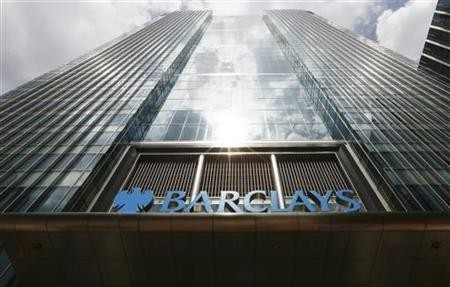Barclays to Bump up Mis-Selling Derivatives, PPI and Identity Theft Cover Compensation Pots

Barclays will unveil millions of pounds more in compensation for the victims of a raft of mis-selling issues as the bank announces its results, and how much it will officially put aside for historical malpractices, on Tuesday.
According to Sky News, Barclays will set aside more money to deal with mis-selling interest rate swaps (IRSA) to SMES, payment protection insurance (PPI) and the new emerging costly scandal- the mis-selling of card fraud protection insurance.
Barclays declined to comment.
Mis-Selling PPI
The mis-selling of PPI is proving to be the most expensive financial scandal in British banking history.
The Financial Services Authority revealed that UK banks have paid nearly £9bn (€10.3bn, $13.4bn) over the past two years to compensate customers mis-sold PPI.
Barclays has already set aside a £2.6bn provision.
Britain's Financial Ombudsman Service told IBTimes UK last month that it will consider hiring more specialist workers to deal with payment protection insurance complaints despite already pledging to double its workforce this year.
According to FoS' chief executive Natalie Ceeney, the Ombudsman receives over 2,000 PPI complaints per day.
Mis-Selling Card Fraud Protection Insurance
The mis-selling of card fraud protection policies, associated with insurer CPP Group, is the latest compensation issue to hit the banks.
Some major firms have already agreed to repay millions of customers who were sold card and ID fraud protection policies from insurer CPP Group.
For example, according to the group's first quarter interim management statement, HSBC set aside $51m for card fraud protection policies associated with insurer CPP Group.
Media reports say that Barclays' directors have discussed taking its first hit for compensating CPP customers at a board meeting this week.
Mis-Selling Derivatives
So far, Barclays has only set aside £850m for mis-selling IRSAs.
IRSAs are contracts between a bank and its customer where typically one side pays a floating, or variable, rate of interest and receives a fixed rate of interest payments in exchange. They are used to hedge against extreme movements in market interest rates over a given period.
Companies that have seen the value of these products move against them as rates fell during the recession now owe banks crippling sums of money in interest payments each year.
But if the businesses want to cancel the contracts, they are faced with higher costs.
Sky News says that the new provision could top £1bn. Barclays, again, declined to comment.
Costly Legacy Issues
Barclays has already paid £290m to US and UK authorities for manipulating one of the world's most important interbank lending rates - Libor.
This month, the Federal Energy Regulatory Commission issued a record fine of $453m to Barclays and four of its traders for the manipulation of the physical power markets.
Ferc said in a statement that Barclays will have to pay $435m (£287m, €331m) in civil penalties and disgorge $34.9m in "unjust profits" and interest, following the US
However, Barclays intends to defend itself against the allegations that it has long disputed.
"We have cooperated fully with the Ferc investigation, which relates to trading activity that occurred several years ago," said a Barclays spokesman in a media statement.
"We intend to vigorously defend this matter."
© Copyright IBTimes 2025. All rights reserved.






















